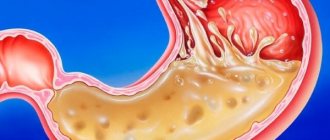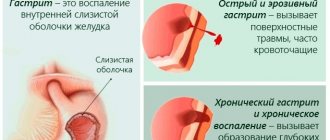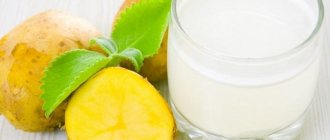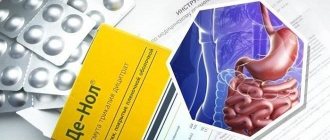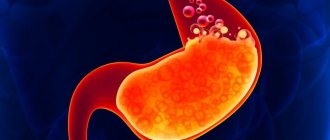Indications for use No-shpa
The drug is effective for spastic constipation and spastic colitis, pyelitis, tenesmus, proctitis, gastroduodenitis, gastrointestinal ulcers, endarteritis, spasms of the coronary, cerebral and peripheral arteries, algodismenorrhea.
In addition, No-Spa according to the instructions is prescribed for the treatment and prevention of muscle spasms of internal organs in renal, intestinal, biliary colic, cholecystitis, dyskinesia of the gallbladder, bile ducts, postcholecystectomy syndrome.
No-shpa is used during pregnancy to relieve the threat of miscarriage and prevent premature birth. In obstetric practice, the drug is used to relieve spasm of the uterine pharynx during childbirth, in case of prolonged opening of the pharynx, and to relieve postpartum contractions.
The drug is also used for cholecystography and instrumental examinations.
Useful tips
- Self-medication is the enemy of our health. Only a specialist can make the correct diagnosis of diseases and prescribe effective treatment. Before taking any medications, consult a doctor.
- “No-spa” is an effective antispasmodic drug, but it must be taken with great caution, as it has side effects that can cause a deterioration in the patient’s condition.
- Gastritis is a serious disease of the gastrointestinal tract, which, if ignored, can develop into a chronic form, stomach ulcer or even cancer.
- Although “No-spa” has indications for the treatment of gastritis, it must be taken with caution in case of gastritis with high acidity, since the removal of spasm does not mean stabilization of the Ph level, which continues to irritate the mucous membrane even after the pain has decreased and, in the absence of proper treatment, leads to recurrence of the disease in a more aggressive form.
Instructions for use of No-spa and doses
According to the instructions, No-shpu is prescribed orally in a dosage of 120-240 mg (daily dose), which is taken two or three times a day. The maximum permissible single dosage of No-shpa tablets is 80 mg, and the daily dosage is 240 mg.
The drug is administered intramuscularly to adults in a volume of 40-240 mg/day for 1-3 administrations. For acute biliary and renal colic, the drug is administered intravenously at a dosage of 40-80 mg over 30 seconds.
No-shpu for children 6-12 years of age is prescribed at a dosage of 80 mg in two doses, for children over 12 years of age - 160 mg in 2-4 doses.
The permissible single dosage when prescribing No-shpa to children 6-12 liters is 20 mg, daily dosage is 200 mg.
When using the product independently, without a doctor’s prescription, it should be taken into account that therapy should last no more than one or two days. If after this period the pain has not been relieved, you should seek medical help to clarify or clarify the diagnosis.
No-shpu during pregnancy is prescribed to take an average of 3-6 tablets/day when characteristic symptoms of increased uterine tone appear - stretching and pain in the lower abdomen. A good effect is obtained by combining the drug with papaverine and valerian. It is recommended to take No-shpa during pregnancy only as prescribed by a doctor, strictly following the instructions.
https://youtu.be/5lu-xgrVf6s
Painkillers for headaches
Pharmacies are replete with dozens of painkillers. How to choose from them what is truly effective and safe?
1. Good old paracetamol (acetaminophen)
If it helps, don’t look for alternatives.
2. Nonsteroidal anti-inflammatory drugs (NSAIDs)
Ibuprofen (Nurofen, Mig, Faspik), diclofenac (Voltaren), acetylsalicylic acid (aspirin). If you have problems with the gastrointestinal tract or intolerance to NSAIDs, you should choose something safer.
3. Combined analgesics
For every taste and color, they contain different combinations of NSAIDs, paracetamol, antispasmodics and caffeine to enhance the analgesic effect (citramon, pentalgin, solpadeine, novigan). Somewhat more effective than pure drugs, however, may be less safe.
Sumatriptan (imigran, amigrenin, trimigren), eletriptan (relpax), zolmitriptan (zomig), eletriptan (relpax). They are used when a migraine diagnosis has been established (that is, before using them, you need to be sure that it is a migraine).
We remember that pills are not candy. Any drug has contraindications and side effects. For example, in the USA, Canada and some European countries, analgin (metamizole) is prohibited.
Studies have shown that it can cause agranulocytosis (a blood disorder) in 1:1500 cases. In Russia, metamizole is used as an analgesic in its pure form (analgin, baralgin), and it is also part of combined analgesics (sedalgin, tempalgin, spazgan, spasmalgon).
Currently, there are many equally effective, but much safer drugs. I do not recommend using analgin and combination drugs that contain it, but the choice is yours.
Side effects
The product can cause palpitations, fever, increased sweating, dizziness, decreased blood pressure, and allergies.
Due to the intravenous use of No-Spa, the patient may experience collapse, arrhythmia, and respiratory depression. To prevent the development of these conditions, a patient with low blood pressure should be in a supine position during the infusion procedure.
Due to an overdose of No-shpa, the excitability of the heart muscle may decrease, paralysis of the respiratory center, and cardiac arrest may occur.
How dangerous is an overdose?
No-shpa is a relatively safe medicine. Extremely rare, but may cause unwanted effects. This occurs, as a rule, in case of violation of the drug administration regimen, in case of uncontrolled, chaotic use. Such adverse reactions are:
- The appearance of headache, dizziness, drop in blood pressure.
- Dyspeptic disorders in the form of vomiting, nausea.
- The appearance of allergic rashes, severe itching, angioedema.
Despite the satisfactory tolerability and relative safety of the drug, the use of No-shpa in large doses, significantly exceeding the maximum permissible, is fraught with cardiac arrhythmias, complete AV block, up to asystole and cardiac arrest.
Contraindications to the use of No-shpa
According to the instructions, the drug No-shpa is contraindicated in cases of severe heart failure, liver failure, hypersensitivity to the drug, intolerance to sodium disulfite (with intramuscular, intravenous administration).
No-shpa tablets should not be taken if you have galactose-glucose malabsorption syndrome, congenital galactose intolerance, or lactase deficiency.
Intramuscular and intravenous administration of the drug is contraindicated for children under 18 years of age, and the tablet form of No-shpa is contraindicated for children under 6 years of age.
For patients with gastrointestinal ulcers, No-Spa is usually prescribed simultaneously with antiulcer drugs.
Since dizziness often begins after intramuscular or intravenous administration of the drug, it is recommended to refrain from driving vehicles or operating other complex, potentially dangerous mechanisms for another hour after the procedure.
During therapy, it should be taken into account that the drug can weaken the effect of Levodopa, the antispasmodic effect of Morphine, and enhance the effect of Bendazole, Papaverine, and other antispasmodics. Phenobarbital increases the antispasmodic activity of the drug.
Analogs
Drotaverine will cost less than No-Shpa. The drug is similar in composition and action. The price of the medicine ranges from 30 to 130 rubles. No-Shpa substitutes are made on the basis of papaverine and drotaverine.
In addition to domestic ones, there are imported analogues, for example Spazoverine from India. No-shpalgin, which combines paracetamol and codeine, has pronounced analgesic properties. Other Russian substitutes for No-Shpa include:
- Drotaverine Forte;
- Nosh-Bra;
- Spasmol;
- Papaverine;
- Spasmonet.
The cheapest analogue of the analyzed antispasmodic is Drotaverine. According to the instructions, the medicine is identical in its mechanism of action and composition. The price of a substitute drug varies from 30 to 130 rubles. Analogs of the drug are made on the basis of papaverine or drotaverine. An unusual substitute is also sold - the Indian drug Spazoverine. A drug containing paracetamol and codeine, No-shpalgin, has a strong analgesic effect. Other analogues:
- Nosh-Bra;
- Drotaverine Forte;
- Papaverine;
- Spasmonet;
- Spasmol.
Composition of the drug and its effect on the body
Drotaverine hydrochloride is the main component of the drug.
Its main form is injections or tablets. Regardless of its type, the maximum amount of the active component in the blood plasma is observed an hour after use and is equal to 65% of the total dosage.
Drotaverine and other active substances combine with proteins, distributing evenly in muscle tissue, and the CNS barriers are not broken.
During pregnancy, a certain amount of medication can cross the placenta. Its metabolism is carried out in the liver, and it begins to be excreted after a few hours from the patient's body in feces and urine, but complete elimination occurs after three days. In urine tests, the components of the drug are not observed unchanged.
What to take for spastic pain
In order to relieve pain in a timely manner, you need to know in which situations which medications can be taken. For pain localized in the abdominal cavity and stomach, many doctors recommend taking Mezim. This medication also relieves morning heartburn and discomfort after eating a heavy meal. In some cases, you can take Maalox. This medicine reduces the level of hydrochloric acid, as a result of which the pain goes away. The duration of the onset of the effect of these drugs is about 40 minutes.
If there is heaviness in the epigastric region, it is necessary to use activated charcoal. It copes well with food poisoning, overeating, and removes toxins, bacteria and toxic substances from the body. Thanks to its natural composition, the drug has no side effects. It can be used in the treatment of children. The advantage of activated carbon is that it is excreted through the intestines and is not absorbed into the blood.
Features of taking the drug
The dosage of the drug is determined by the characteristics of the pain, its intensity and duration, as well as the age of the patient. It is preferable to consult a physician before use, who will select the optimal dose of the drug for the patient.
This is one of the most effective antispasmodics, helping to relieve flatulence, discomfort and severe pain in the stomach.
Possible side effects
When using the drug, side effects may occur such as insomnia, constipation, difficulty breathing, dizziness, nausea, sweating, swelling, vomiting, increased painful symptoms, changes in blood pressure, and an allergic reaction. If side effects occur, you should immediately stop taking the medicine and consult a doctor.
If you feel heaviness in the epigastric region, you should take activated charcoal. It perfectly eliminates overeating, food poisoning, removes toxic substances, bacteria and waste from the human body. Its natural composition does not cause side effects in patients. It can also be used in pediatrics. The main advantage of activated carbon is that it is excreted through the intestines, and also that it is not absorbed into the blood.
Among the current antispasmodics, it is necessary to highlight calcium and sodium potassium inhibitors. With their help, quick results are ensured; they are characterized by a minimal number of negative manifestations compared to other antispasmodic drugs.
The following drugs have gained popularity:
If stomach pain occurs due to a psychogenic factor, it is necessary to take strong antidepressants. Such drugs can only be prescribed by a specialist.
Characteristics of the medicine
The main component in the warehouse is considered to be drotaverine hydrochloride. It affects the smooth muscles of the digestive organs, spasms stop, severe pain disappears, and the muscles relax. Drotaverine helps dilate blood vessels so that enough oxygen enters the cells.
The drug is approved for use by pregnant women, practically does not penetrate the placenta, and does not pose a risk to the health of the child (of course, subject to the doctor’s prescriptions and taking into account the risk for the expectant mother and baby). When breastfeeding, taking No-shpa is contraindicated; no studies have been conducted in this direction.
The medicine is used for therapeutic and prophylactic purposes.
- In the form of tablets. The medicine looks like small, round, yellowish tablets. Contains 40 milligrams of the main component - drotaverine hydrochloride and a number of additional components - talc, starch, magnesium stearate, lactose, povilone.
- In the form of injections. The ampoule contains 2 milligrams of a transparent, yellow-green solution. Includes 40 milligrams of drotaverine, 96% ethanol, sodium disulfite and water for injection.
Side effects
Like any medicine, No-shpa has side effects. Highlight:
- allergic reactions to individual components (itching, rash, swelling);
- disruptions of the heart and blood vessels (jumps in blood pressure, rapid heartbeat);
- poor sleep, dizziness;
- sweating;
- feeling of heat;
- disruptions in the functioning of the digestive system (constipation, nausea).
Negative reactions as a result of taking an antispasmodic are extremely rare. If it develops, you should stop taking it and consult a doctor.
Reviews
There are also negative opinions that talk about the lack of proper influence, when the pain only dulls, but is not completely eliminated.
About stomach pain
Abdominal pain is the most common symptom of diseases of the abdominal organs, sometimes of damage to nearby organs. Pain has an important protective function and warns us about real or potential problems in the body.
However, it should be said that with prolonged abdominal pain, regardless of the cause, it gradually loses its signaling value.
The causes and mechanisms of pain formation are quite diverse.
https://youtu.be/l3Kbgm9KsFQ
Typical pathologies
Acute pain
If it appears suddenly, accompanied by vomiting and fever, then this may be a symptom of poisoning, infection, or surgical disease. There is a special form of myocardial infarction (abdominal), in which acute pain occurs not in the heart, but in the epigastrium. All of these conditions are life threatening. In order not to waste time, you need to urgently call “03”.
Strong pain
Occurs in acute gastritis, exacerbation of peptic ulcer, complications of ulcer (penetration, perforation), pancreatitis, in the initial stage of appendicitis. If it appears, you need to urgently consult a doctor or call “03” to rule out surgical pathology (we recommend asking your surgeon a question).
Sharp
Characteristic of tumors of the epigastrium, pancreas, penetration of the ulcer (its penetration into nearby organs), the development of adhesive processes in the tissues surrounding the ulcer. Periodic is characteristic of gastritis, duodenitis, exacerbation of peptic ulcer. The diagnosis is established using FGDS. All these symptoms are a reason to consult a specialist.
Aching
Constant aching pain is characteristic of tumors of the stomach, pancreas, penetration of the ulcer (its penetration into nearby organs), and the development of adhesive processes in the tissues surrounding the ulcer. Periodic spasms are characteristic of gastritis, duodenitis, exacerbation of peptic ulcer disease. The diagnosis is established using FGDS.
Hungry pain in the stomach
Occurs with increased acidity. It is observed in gastritis, peptic ulcers and is quickly eliminated by antacids (phosphalugel, Rennie, Almagel). These drugs relieve discomfort, but do not treat the underlying disease. To establish the cause, you should contact a gastroenterologist or therapist.
During pregnancy
The cause may be acute and chronic diseases of the gastrointestinal tract, toxicosis, hormonal changes, and after 20 weeks - displacement of internal organs by the growing uterus. To find out the nature of the ailment, you need to consult a therapist. Pregnant women can take No-shpu and non-absorbable antacids (Gatracid, Maalox, Almagel), other drugs - strictly as prescribed by the doctor. Consult your gynecologist.
